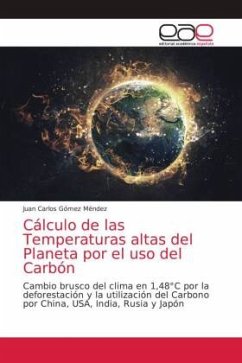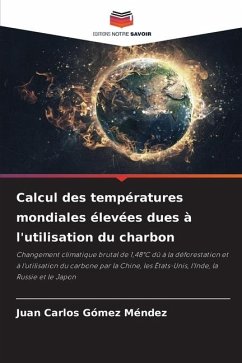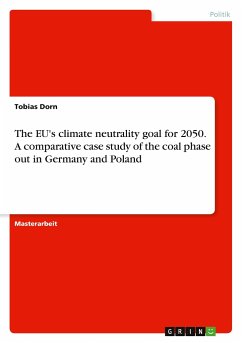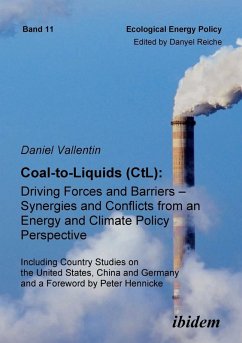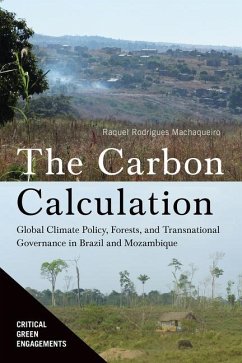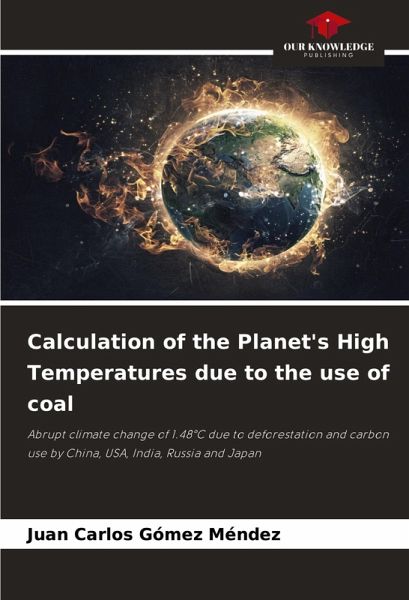
Calculation of the Planet's High Temperatures due to the use of coal
Abrupt climate change of 1.48°C due to deforestation and carbon use by China, USA, India, Russia and Japan
Versandkostenfrei!
Versandfertig in 6-10 Tagen
29,99 €
inkl. MwSt.

PAYBACK Punkte
15 °P sammeln!
The year 2023 was the warmest year in history since records have been kept, according to the Copernicus Climate Change Service. The global average temperature was 1.48 °C. This increase was due to greenhouse gas emissions, deforestation that raised ocean and atmospheric temperatures. The year 2023 was marked by extreme heat waves, droughts, fires, floods and storms. This research performed a characterization of the global average temperature change variable, a normality test was applied to the data through the Shapiro Wilk analysis, it was found that the global average temperature change devi...
The year 2023 was the warmest year in history since records have been kept, according to the Copernicus Climate Change Service. The global average temperature was 1.48 °C. This increase was due to greenhouse gas emissions, deforestation that raised ocean and atmospheric temperatures. The year 2023 was marked by extreme heat waves, droughts, fires, floods and storms. This research performed a characterization of the global average temperature change variable, a normality test was applied to the data through the Shapiro Wilk analysis, it was found that the global average temperature change deviates from the average, the future projection through the linear regression forecast model, year by year since 2024 indicates that it will increase until 2030, resulting in the year 2026 the temperature of the planet will be 1.5°C; This will seriously affect the health of some 350 million inhabitants who will be left without access to drinking water, exposed to extreme heat or freezing temperatures, and will be at risk of death.





